Scam of the century, (part three)
Wednesday, 25.05.2011.
04:15

Scam of the century, (part three) After the first two episodes of the serial “Scam of the century”, the Insider redaction is being swamp on a daily basis with information about numerous misusages in Kolubara, as well as in other public enterprises. All the information point out that Pandora’s Box is only ajar. Malversations and misusages in public enterprises last for more than two decades, unwritten norms are hard to change despite introduction of written ones. The real reason behind this is that people involved in this well-coordinated circle just rotate from one position to another. The Kolubara business endeavors reveal only few of the systemic slips responsible for the state present economic turmoil. Besides some superficial changes, the system remains unaffected regardless of the power division changes within the government: the state property remains the source of individuals’ money-making, market competition does not exist nor there is entrepreneurship without personal ties. For 130 million euros, the amount Kolubara had spent in the past 8 years for rental additional machinery, at least 260 heavy duty coal mining machinery could have been bought. Instead, for years, Kolubara was renting these machineries from private companies, and as it turned out, this state enterprise was paying much more than it was really necessary. In fact, the enterprise made payments even in cases when privately owned machinery were not operating. For two decades, mining basis Kolubara is a source of individuals’ money-making due to the difference in coal prices. Kolubara sale price for coal is a lot higher today, but still above the market ones. The explanation put forward by the officials for this price level is that if Kolubara raises its prices, the endmost users, industry and citizens would have to pay even more. No one, however, seriously question dealers’ handling fees and profit amounts. These, however, are not the only malversations within Kolubara. In 2004-2009, Kolubara engaged machinery from around 200 privately owned companies, wherein certain individuals were involved in business through several companies, even through ones not officially registered on their respective names. It is exactly those companies that appear on three payrolls in Kolubara: firstly as direct coal buyers, secondly through engagement of rental machinery in coal fields and thirdly through engagement of machinery in infrastructure building in and around municipalities, again paid by the state enterprise Kolubara. According to the Insider research, a Protocol signed in 2006 by Branko Boric, a mayor of Lazarevac municipality, and Dragan Tomic, at the time Kolubara CEO, was, in effect, a foundation set up for the drastic increase in number of rental machinery by the privately owned companies. This document states that Kolubara will pay for infrastructure repair work in the municipality of Lazarevac in order to repair the damage caused by coal mining works. The Protocol was expanded with annex extending to other municipalities as well, but also to works needed by Serbian Orthodox Church. For these purposes, Kolubara firstly committed to engage 126 machines, then 172, while the last annex increased the number to even 472 machines. Milivoje Matijasevic, Anti-corruption Council, Lazarevac: That’s when the real chaos started, meaning that 229 entrepreneurs, individuals and privately owned companies, through the company “Kolubara Gradjevinar” started to engage their machinery, to work. The privately owned machineries employed at Kolubara coal fields, municipalities and for objectives of Serbian Orthodox Church were all engaged without tender, even though everything was paid for by the state enterprise Kolubara. Due to this obvious systemic mistake, this was in practice, a legal move. Several diversified businesses have been formed outside of the scope of the main business i.e., coal mining, as a part of the Kolubara restructuring. The state so formed several new enterprises. They are: “Kolubara Gradjevinar”, “Kolubara Univerzal”, “Kolubara Usluge” and “Kolubara Metal”. These companies, in the first four years, had a right to work for Kolubara without tender in order to strengthen their respective position on the market. This decision, granted by the authorized institutions, achieved in practice that these diversified businesses, with a right to work without tender for mining basin Kolubara, are used as mediators for engagement of machineries owned by private companies. This practically allowed entrepreneurs to enter Kolubara without tender. Based on the Protocol, Kolubara so signed contracts with the daughter companies, “Usluge” and “Gradjevinar”. “Gradjevinar” director at the time was Marinko Maric, a party activist of G17 in Lazarevac assembly council. Marinko Maric, “Kolubara Gradjevinar” director from 2005-2007: A contract with Kolubara was made, to engage those machinery, wherein Kolubara was an investor based on EPS decision, probably, to engage sources, to work on infrastructure in these three municipalities damaged through mining works. At the time when Maric was replaced from his position at “Gradjevinar”, another contract was signed. The contract, almost identical to the Protocol signed between Kolubara and the municipality, extended further the deadline set for infrastructure repairs but at the same time, increased the number of machinery which Kolubara was paying for these purposes. Marinko Maric, “Kolubara Gradjevinar” director from 2005-2007: Starting with 2007, I was not suitable anymore, not to the syndicate, that is, to “Gradjevinar”, the program wasn’t suitable for them, it’s possible this was the issue, and I also was not suitable for many others too, both within “Gradjevinar” and some others, hence, simply, we …that is, I was… B92: And why you were not suitable for them? Marinko Maric, “Kolubara Gradjevinar” director from 2005-2007: It was the issue something about signing contract, I think those were some other issues, simply, I wasn’t suitable to many entrepreneurs in Lazarevac. Maric refused to specify the probable reasons for his unsuitability to the Lazarevac entrepreneurs, but it is interesting that he was replaced by a new director, Slavoljub Pavlovic Kolubarac, an activist of the local Socialist party of Serbia, after whose appointment “Gradjevinar” engaged even more of privately owned companies for works in Kolubara. Dusko Obradovic, “Usluge” director, as well as Slavoljub Pavlovic Kolubarac refused an interview with Insider. It remains unclear what were the exact amounts of profit of these state enterprises in the past years, and were entrepreneurs engaged only after Kolubara had employed all the machinery of the state companies. Although there are no written proofs the money from Kolubara was used for party financing, interestingly enough some party activists also rented machinery to Kolubara, while the 2006 year, when the protocol between Kolubara and the Lazarevac municipality was signed, was an election year in Serbia. Moreover, Kolubara regularly pays annual tax on coal exploitation both to the state and municipality and this money is used for infrastructure development. Besides, Kolubara always takes on a responsibility to repair possible damage made by coal mining work around and in the settlements, hence it is not clear what the purpose is, if any, of the signed protocol, except perhaps, to engage machinery from as many as possible privately owned companies. Such doubts have provoked Anti-Corruption council from Lazarevac to start an investigation about Kolubara endeavors regarding infrastructure repairs in the local communities, that is, to check if everything that Kolubara paid for was actually brought to its purpose. Milivoje Matijasevic, Anti-Corruption council, Lazarevac: Approximately one third of the works was carried on, two thirds were only fictive, the problem is that this was all happening some two or three years ago, and if you would walk in into any of these local community offices, and look inside daily log, and then walk around, and compare what’s written in those logs and what’s brought to purpose- you cannot see it, it doesn’t exist. So, this is more than a reliable proof. For example, in the local community Trbusnica, you have a council president, who is also an owner of the company employed to work in that same community, where some 80.000 cubic meters were dig out from a road. This is what could be, what is easy to prove. And, let’s say, that you go in there now, and that dump is not there, those invoiced roads are not there. There is only a huge amount of working hours… According to Anti-Corruption council from Lazarevac, in Trbusnica, for instance, from 2006-2008, Kolubara paid for the machineries allegedly operating for 54.250 hours. Waste pulled out numbered 61.300 cubic meters. At least 6000 trucks are needed to transport this much waste. A landfill is nowhere nearby to be seen, while a drain down the road is hardly visible. Mirosaljci is a small local community, almost a hamlet. Allegedly, 84.300 cubic meters of waste was dig out, mostly soil. Machinery was employed for 24.431 hours. Waste cannot be seen, nor was there a trace showing that this amount of soil was ever at the location. Milivoje Matijasevic, Anti-Corruption council, Lazarevac: There are many similar examples, everywhere. If you look in a daily log, and see that some machines were to work at that or this particular locality, and in that locality nothing can be seen in terms of envisaged works, that is enough to conclude that a machine was only fictively employed. If you go to a village, and see there’s no channel 25 kilometers long, or a road 25 kilometers long, but it is invoiced as such, while it just doesn’t exist, it is clear this was only fictively done. The basic protocol included infrastructure repair works in 42 local communities within the municipality of Lazarevac. Three months after this document was signed, Dragan Tomic and Branko Boric had signed an annex allowing extension of works to all municipalities surrounding coal fields of Ljig, Lajkovac, Barajevo, Arandjelovac. It is not known, however, if Branko Boric, the president of the municipality of Lazarevac, had an authorization to sign the protocol and annex regarding other municipalities and the works for Serbian Orthodox Church. Boric refused an interview with Insider. In the same time period, Kolubara was also paying for the works in the municipality of Topola, situated far from the mining basin Kolubara- which means that the Kolubara trucks and dredges did not have a chance to destroy Topola roads and streets. At that time, in 2006 and 2007, the ruling party in Serbia, as well as in Lazarevac and Topola was a coalition led by Democratic Party of Serbia-New Serbia. Branko Boric, president of the municipality of Lazarevac, Dragan Tomic, Kolubara CEO and Vladimir Djordjevic, EPS CEO at the time are all party activists of Democratic Party of Serbia. At the same time, Vladimir Jevtic Jefta, the former manager of the Lazarevac municipality, and at present a member of the municipality council, and Dragan Jovanovic, president of the Topola municipality, are party activists of New Serbia. Additionally Jevtic and Jovanovic are connected through godfathering ties. Jovanovic however, claims that this godfathering tie with the former manager of the Lazarevac municipality has nothing to do with Kolubara machinery engagement in Topola. He did send an official request to Kolubara, but as he says, the deal was concluded somewhere else. Dragan Jovanovic, Topola municipality president: We did address Kolubara Board, but what’s that got to do with anything? We are connected through godfathering, our families are, for a 100 years. It’s not connected in any way, we didn’t have connection with the municipality, only with Kolubara, I repeat this all the time, if you want to hear. So, we addressed Kolubara Board, got an approval, 2 kilometers of the local road leading to the Nikolje monastery were done, we didn’t have anything to do with machineries’ operating hours, because we were told- when they are done, they will pull out. B92: Why did you address Kolubara in the first place? Dragan Jovanovic, Topola municipality president: Evdokije, head of the monastery Nikolje, and Sumadija bishop Jovan first did the talking with Kolubara CEO, Mr. Dragan Tomic, and then I was informed, so that was the reason for us, as municipality, to formally address Kolubara Board. This was not a party issue, this was an urgent matter because the monastery walls were at risk, due to the water flow. It was a big torrent so this was only an emergency case. Vladan Jovicic, Kolubara CEO from 2007-2009: It was obvious it was an election year, when everybody rushed to tie lose ends, to finish what they haven’t accomplished in the past year or two. This will be so until we change our consciousness and set up market relations for everything in this state. That’s the task we still cannot accomplish and therefore we all suffer. Division of political power in 2006, within the rest of municipalities which infrastructure works were as well paid by Kolubara, also appears interesting. Ljig municipality president was Miroslav Maksimovic, still holding the position at present. He was elected as a representative of citizens, but in 2008, he was reelected as a member of New Serbia. Lajkovac municipality president in 2006 was Vladan Colovic, a party activist of Democratic Party. Before that, he worked in the mining basin Kolubara in Lazarevac. His successor was an entrepreneur, Dusan Zivanovic, elected as an activist of Democratic Party of Serbia-New Serbia coalition. He was as well employed in the mining basin Kolubara. Barajevo municipality president is Branka Savic, Democratic Party activist. Until 2008, the ruling party in Barajevo was a coalition by Democratic Party, New Serbia, Democratic Party of Serbia. She was reelected in August 2008, when the ruling power was formed by a coalition of Democratic Party, New Serbia, Democratic Party of Serbia and Socialist Party of Serbia. Aradjelovac municipality president, from 2004, is Radosav Svabic, a member of Serbian radical party. He was reelected in 2008. Vitomir Dimitrijevic, an entrepreneur with the greatest number of rented machineries, says his machineries were also engaged in the municipalities’ infrastructure works, but that Kolubara official documentation often does not record a precise machinery whereabouts. Vitomir Dimitrijevic, “Devix” company, Lazarevac: This was never noted down, in a log, works here or there, but it was done. B92: How come it wasn’t? Vitomir Dimitrijevic, “Devix” company, Lazarevac: Well, it wasn’t written in a log, because it says “local community”. It wasn’t written “local community such and such:, but “works for the purposes of coal mining, distance from this to that place etc”. As far as I know, for the trucks for instance, this was all noted down by Kolubara; I had fewer trucks than heavy duty machinery. Out there, some truck and smaller machinery were employed on some access roads, those were all local communities, for the purposes of coal fields. If you now ask me if this was justified or not, I now, from the viewpoint of Lazarevac citizens, can say, what coal field has taken, it’s justified. It’s a matter of the enterprise politics, if an issue was misused or not, it wasn’t, I wouldn’t know to say. According to Topola municipality president, Dragan Jovanovic, Kolubara paid for 2 machines and 4 trucks for the municipality, 8 days at most. He says, also, that the machineries worked 10 hours per day, at maximum, meaning that the machineries operated in Topola for 480 hours total. However, according to Anti Corruption Council from Lazarevac, Kolubara documentation shows that those machineries worked in Topola 1274 hours, that is, 794 hours more. Dragan Jovanovic, Topola municipality president: According to the statements from my own people, from the municipality, who were with these guys from Kolubara, there were 2 machines and 4 trucks. So, according to the statements- I have to hedge off some here- according to the people from the municipality, the machineries were employed for some 7 or 8 days. I don’t know anything about working hours, we had nothing to do with it, how much they operated, because we were told- “when they’re done, then we will return them”. It’s their people that signed, we had nothing to do with it. If someone was involved in this, say, noted down more, that person should be hold responsible, trust me. If those hours you are showing me are really exact and true, and I’ve never laid my eyes on those hours, not before this show, then, it’s something unbelievable. Anti Corruption Council from Lazarevac filed criminal charges to Special Prosecutor for Organized Crime, on grounds that Kolubara had paid the infrastructure works which were not performed in full. Additional grounds were also lack of supervision during machineries engagement. The supervision, according to the protocol, was suppose to be done by Land Development Public Agency from Lazarevac, by an authorized person from Kolubara and a person, authorized by the local community council where the works take place. It turned out the supervision was not carried out in accordance with the protocol. Milivoje Matijasevic, Anti Corruption Council, Lazarevac: We sent a letter to the Directorate, an office assigned by the protocol for supervision and control. They did answer back, saying they don’t have a single document about these works, they haven’t got a clue what we are asking of them and why, since they have no idea what is going on. So, we called the former director, he was at that position when the protocol was signed, he was replaced in the meantime. And the man was very nice to us, he came to our council meeting and asked, in front of the whole council, to inspect the protocol, and he did so, and said:” Listen, this is the first time I’m seeing this, I have no knowledge about this issue, no one ever told me we are to provide supervision, so we didn’t supervise them”. He even insisted to sign these words, to give a statement, and he did sign it. According to the protocol, Lazarevac municipality appointed coordinators to monitor the works in the local communities, responsible to determine the necessary type of work, and who were to suggest to Kolubara a number of machinery needed. The coordinators are also members of the city council, Vladimir Jevtic and Zoran Cvetanovic, and both refused an interview with Insider. Milivoje Matijasevic, Anti Corruption Council, Lazarevac: We asked for their help too, we sent them a letter, asked them to explain what the process was of their engagement in this whole business, and we got a letter where they denied being the municipality coordinators in the first place. Both have given us the identical answers. B92: In written form? Milivoje Matijasevic, Anti Corruption Council, Lazarevac: Yes, in a form of letter, we have everything in our archive, responses by the Directorate, by the presidents of the local communities… Anti Corruption Council from Lazarevac suspects that even the presidents of the local communities were involved in rental machinery business, despite they were assigned to control if everything Kolubara had paid for was brought to its real purpose. Milivoje Matijasevic, Anti Corruption Council, Lazarevac: Each and every president of local community council was present at one meeting we called, so that they could explain what was going on. However, we were very surprised to hear that 42 council presidents claimed not to posses documentation dating from that period, not only regarding these works but no documentation al all. We though this was very suspicious, were there some reasons why they are saying what they are saying, why they hide…Hence, we have a local community Mirosaljci, where its president, the president of the local community council had some 2-3 trucks involved. Or, a local community Trbusnica, where its president is at the same time an owner of private company employed in the community. Based on FOIL-obtained information, Insider concluded that the official data do not support claims that the drastic costs increase was due to expenses paid for rental machineries employed in municipalities’ infrastructure repairs. The total costs for rental machineries were on the rise even when engagement in municipalities decreased. In 2006, when the costs drastically rose, Kolubara allegedly provided 7.3 million Euros for infrastructure work repair in municipalities, out of the total 17.5 million Euros aimed at rental machineries. The total costs continued to increase in 2007, when they reached 30.3 million Euros, while in the same year, money for municipalities were 11.3 million Euros. However, in 2008, when the costs for rental machineries reached its peak, money for municipalities were at the lowest level, around 830 000 Euros, less than a million, while the total costs for machineries were 53 million Euros. Besides the annex regulating the infrastructure works in local municipalities, Dragan Tomic and Branko Boric had signed another one, regarding extension of works for purposes of Serbian Orthodox Church. The result of this extension to many more municipalities and Serbian Orthodox Church is an engagement of numerous machineries, from 126 to 472 in the municipalities. Everything was paid for by Kolubara. During these several years, the enterprise exceeded all the estimated budgets aimed at rental machineries but at the same time, generated only losses. From 2004 to 2009, in addition to the exceeded budget for rental machineries, the planed budget for sponsorship and donations also exceeded the estimations. Namely, for every year, a business plan is suggested, estimating expenditures for every issue, including sponsorships and donations. It is not clear how a state enterprise with negative balance sheet could spend large amounts for these purposes. Out of total 165 users of donations in money and coal, the church and monasteries make 72 users. The purpose of money donations varies. Most often, donations were given for construction works or purposes noted as “needs of the Church”, or in one instance, a donation for sound system for the Spasova Church. Donations were also provided to religious associations such as “Society of Hilandar friends” or “Society of Bible researchers”. Some donations are peculiar, such as one where Kolubara donated money to one of its workers, for the purpose of visiting Christ tomb in Bethlehem, or a donation to Barosevac local community for the purpose of acquiring automatic machine for shooting clay pigeons. As well, it is not clear why would a state enterprise pay to the monastery of Sopocani more than 2.3 million Euros for the purpose of electricity debt adjustment. Millions were given to “Princip Bonart Press”, a publishing company. Kolubara greatest losses were in 2008. Despite this, money was provided for tickets purchase for “Melos Estrada”. Marija Marjanovic, got a donation for a movie directed by her daughter; it is not clear who is she, and if Marija was employed in Kolubara. Multimillion-donation was given to “Srpski sabor Dveri”, for the project, as stated on their web site, “EUthanasia: Kosovo above Europe”. From 2004 on, Kolubara CEO was Dragan Tomic. At the end of 2007, Vladan Jovicic became Kolubara CEO, but Tomic remains highly positioned within the enterprise as EPS deputy and president of Kolubara assembly, a dependence company within EPS. This latter position allowed him to approve donations of larger amounts, while smaller amounts were approved by CEO Kolubara. Tomic refused an interview with Insider, so we were unable to get an answer to the question of criteria used by the president of Kolubara assembly in donation approval. Vladan Jovicic, Kolubara CEO at the time, must have been aware the donation budget was exceeded. B92: 2008, 136 million given to donations. At the same time, Kolubara operates with a loss. How’s that possible? Vladan Jovicic, Kolubara CEO from 2007-2009: Donations were given to those who needed it. B92: Why a donation was given to Srpski Sabor Dveri in the amount of 4.2 million dinars? Vladan Jovicic, Kolubara CEO from 2007-2009: For the purpose of publication. Everything above 100 000 is discussed at the Assembly, there were cases when the amounts of 100 000 discussed at the Assembly of dependence company were approved. Sometimes, approvals have been made at the Assembly special meetings. So it was possible to approve something at those meetings. B92: Which means that one man could approve a donation, decided on its approval? Vladan Jovicic, Kolubara CEO from 2007-2009: Well in essence, that’s how it appears, if you look at it this way. B92: Could you explain, this is 100 000 dinars, so you have approved this as CEO, to some Marija Marjanovic for a movie directed by her daughter. I apologize, but this is not clear to me at all. Vladan Jovicic, Kolubara CEO from 2007-2009: I don’t understand it either. I would have to inspect that application again, in order to say why I decided to approve the donation in a given moment. Right now, I cannot say if the application asked for one thing, but was used for something else. While Jovicic was Kolubara CEO, most donations went to the sports association of Kolubara but large donations approved by the Kolubara assembly were used mostly by the Church. In 2009, Democratic Party appointed Nebojsa Ceran as Kolubara CEO. Donation list was reduced but provisions were not significantly lower, hence the estimated budget was exceeded again. Nebojsa Ceran, Kolubara CEO since 2009: Provisions could be run much better. Kolubara is a great donor, Kolubara deals with large sums. If you look how much Kolubara donates, it’s one large amount of money, if you look which part of the profit that is, it’s probably among lower sums out of the public sector of the republic of Serbia. Hence, a rulebook was introduced after I became a CEO, I don’t think it existed earlier, I’m not sure… B92: Also, a parish building was finished, I think in Lazarevac. That was done in your time? Nebojsa Ceran, Kolubara CEO from 2009: The donations of the public sector to Serbian Orthodox Church are so omnipresent, that I’m really confused by your question. I have reduced it to only 10% from what Kolubara had been giving before to the Church. Provisions for donations and sponsorships in certain years have drastically exceeded the estimated budget. In 2005, the expenses were three times more than the planed ones, and the next year, the double. EXCEEDING THE BUDGETS FOR DONATIONS, SPONSORSHIPS, HUMANITARIAN ACTIVITIES YEAR PLAN REALIZATION 2004 174.533 Euros 456.032 E-261% 2005 172.730 E 842.427-487% 2006 390.081 E 883.216 E-226% 2007 1.199.000 E 1.351.000 E- 112% During the years with the greatest losses, Kolubara made the greatest provisions for rental machineries, sponsorships and donations. In 2007, Kolubara minus figure was around 120 million Euros, while the provisions for donations exceeded the estimate for more than 1.3 million Euros. In 2008, when the minus figure was 17.6 million Euros, the provisions for sponsorship and donations were 1.7 million Euros. In addition to the fact that the rented machinery in one period operated non stop for the whole month, or that a worker operated non stop for 96 hours, one of the reasons for the drastic increase of expenses could be also the prices Kolubara had paid to entrepreneurs for rental machineries. Namely, Vladan Jovicic claims he reduced the costs for 30% in the beginning of 2009, the reason being that the previous year experienced the costs for rentals of stunning 53 million Euros. New Kolubara CEO, Nebojsa Ceran, reduced the costs further, for another 10%. Along with reduction of rented machinery, firm and clear division of costs for effective and passive engagement of machineries, the total costs so were reduced in 2009 for 60%, with the reduction trend continuing into 2010. B92: It is interesting, you’ve mentioned a couple if times, you’ve reduced the prices for rental machineries? Vladan Jovicic, Kolubara CEO from 2007-2009: That’s correct. B92: Does this imply the prices were inflated during Dragan Tomic directorship? Vladan Jovicic, Kolubara CEO from 2007-2009: This was not about whether I thought the costs were higher before, and now they have to be reduced. Simply, it’s a clash between offer and demand. If you have a number of machineries employed, then they operate less, and it’s logical that, with a larger offer you get also a lower price, while at the same time, those prices were still a lot lower than the prices in for example, “Beograd put”, because simply, you have taken experiences of the similar companies… B92: So, you claim the prices were not inflated? Vladan Jovicic, Kolubara CEO from 2007-2009: The prices were not… I didn’t set prices just like that, this costs this much, or an hour is that much, simply, I’ve found out how much is to rent a machinery, for how much certain companies work, and from those, you acquire a price. B92: How’s then possible this be to profitable for entrepreneurs, when prices are going down and inflation is going up, fuel prices are going up, Euro is going up, everything in terms of prices is becoming more expensive, and the costs are going down? How’s that profitable? Vitomir Dimitrijevic, “Devix” company, Lazarevac: This is how it works in terms of profitability, although it’s doubtful if you can look at it this way. You have a price based on agreement, and that’s how you did it. Then, you need machinery, you bought it, calculated some and certain prices were negotiated , of course, some people from the top of the chain did it, no one called us for a negotiation. However, every change brings in something new-either positive or negative. For some, it turns out to be positive, while for some- negative. Vlada Jovicic and the rest of CEOs are all directors I know for 20 or 30 years, and he came to this position to introduce changes, I don’t see a reason why would he reduced the prices so much. And then, there was a system, that’s how I see it, absolutely unprofessional, no, this will be the price, in order to change something. And it’s fait accompli for you, you have machinery, you have people, you have to work. What now? We won’t work? “You don’t have to work, I will employ workers from Vranje instead, and will work then”- possible. Simply, you have to work. In 2009, the new Kolubara management announced the tender offer, for the first time, for machineries engagement in 2010. There were 4 competitors. “Gradjevinar” won, bringing along as subcontractors the same companies already in business with Kolubara. However, it is still not clear what the criteria were for selecting subcontractors. Vitomir Dimitrijevic, “Devix” company, Lazarevac: Well, I’ll tell you. I was invited by Kolubara-“Gradjevinar” to participate in consortium, however, on the meeting, the conditions suggested by “Gradjevinar” director, 10% provision, 5%, 5 dinars per gasoline, since they are to supply gasoline, and there was an additional condition, not really exclusive- that they are to employ their own drivers, and not the drivers from a company they are renting from. However, this all was totally unacceptable for me. From all the major players in rental machinery business, only Vitomir Dimitrijevic who participated in the tender offer independently with his company “Devix”, dropped out from the job. He claims the tender was irregular and that he had complained about it to the authorized institutions. He is still waiting for the final appeal decision. The rest of the major players remained in the business, wherein the state enterprise “Gradjevinar” hired 28 privately owned companies as subcontractors. Among others, a company “Daka” remained in the business, owned by the daughter-in-law of Dragan Markovic Palma, then, “Janko Stajcic” company, in which, through a co-owned company “Jankos”, share of the ownership has Mileta Radojevic, an activist of Social Party of Serbia, and recently, also an acting director of Public Transport Enterprise Belgrade. There are three additional companies in business with Kolubara for a long time, with numerous rented machineries; all are connected with the last name of Jankovic. These are “Iris” company, owned by Zoran Jankovic, then “Helena Komerc” and “Eksport-import Jankovic”, both companies owned by Dragan Jankovic. Also, “Plan project” remains in the business, owned by Dejan Zivojinovic, registered at the same address as ”Nukleus” company, owned by Vladimir Jevtic Jefta, a member of Lazarevac municipality council and activist of New Serbia. Furthermore, “Sakupljac” company, owned by Dejan Radosavljevic, is in business with Kolubara for years. As a subcontractor of “Gradjevinar”, a state company “Kolubara MB” also is in the business- the same company that used to engage privately owned companies in the previous years. Moreover, the company “Laketa Lazar”, owned by Lazar Laketa, is in business with Kolubara for years. As a subcontractor, the company “Svin” from Gornji Milanovac, owned by Bojan and Nenad Draskic, is also in the business. According to our research, the companies most likely to stay in the business are connected one way or the other with Radosav Savatijevic Kene, who is a member of EPS Board, a working body suppose to control Kolubara endeavors. Radosav Savatijevic Kene was appointed at this position by Mirko Cvetkovic Government, at the suggestion by Socialist Party of Serbia-Party of United Pensioners of Serbia-United Serbia coalition. Those are the companies “Aras beton”, “Beoogrev” and “Beokran system”, the latter never being in formal association with Savatijevic. However, as it was reported in the first Insider episode, a document confirming an engagement of “Beokran system” was signed by Savatijevic. This document is a part of the official paperwork of “Kolubara Gradjevinar”, and contains a handwritten date and abbreviation of the company. “Beokran”, registered in Serbian Business Register Agency, has never rented machinery to Kolubara, and the fact the official documents on rental machinery contain handwritten items, the abbreviation denoting the third company which has nothing to do with this whole business, is just another proof about unprofessional bookkeeping of the official documentation. From 2004-2010 Kolubara rented coal mining machinery for coal mining and infrastructure works from more than 200 privately owned companies. Practically, all the well-known people from Lazarevac had a machine or two rented, whether or not their companies were registered for this kind of activity. Every effort, by the Kolubara management, to reduce the number of rented privately owned machineries, was meet with resistance. Nebojsa Ceran, Kolubara CEO: The most pressure comes from the different view about Kolubara’s activities in regards to the surroundings. So, entrepreneurs from Lazarevac wrote a letter” We will block the roads unless we get jobs in Kolubara”. Or, for instance, a year ago, a certain political party from Lazarevac put posters within the whole city with my own photo, and that of my deputy. It was like, “Who are these guys who make laid offs?” By the way, we haven’t fired anyone. Vladan Jovicic, Kolubara CEO from 2007-2009: It has happened, the phone calls to your own home, to threat you….all those heroes who do have a guts to stand in front of you and say “hey man, this and this..”. Several of them had even come in the early morning, with their trucks, on the plateau in front of the Kolubara main entrance, and then you simply call the police, or someone else, and it’s logical the police had to know the names of these people. I’ve never run away from them. B92: Was someone arrested because of this, interrogated, or punished? Vladan Jovicic, Kolubara CEO from 2007-2009: Hmm, yes, surely, terrible…they had more important things to do. Insiders’ numerous sources claim that policemen, prosecutors, syndicate workers, priests, actors, movie directors etc were engaged in renting privately owned machinery to Kolubara. This is not possible to verify, of course, some people have become skilled in hiding, engaging their own machinery through someone else’s companies. The involvement is possible to confirm only through people’s owned assets, but this is the jurisdiction of certain fiscal officers who, obviously, do not address how someone became rich overnight. Despite criminal charges, changes in the governments and managements, reduction of the costs, the whole system remains intact. New rules are successfully being avoided. So, the state enterprise Kolubara still represents a source for money-making for many individuals. The research about the endeavors of the mining basin Kolubara, one of the 11 dependence companies within EPS, shows that the whole system in the state is set up in such a way to allow individuals with political ties to make money at the expense of all citizens; in addition, the research also points out to the lack of firm rules regulating business endeavors of public enterprises.
Scam of the century, (part three)
After the first two episodes of the serial “Scam of the century”, the Insider redaction is being swamp on a daily basis with information about numerous misusages in Kolubara, as well as in other public enterprises. All the information point out that Pandora’s Box is only ajar. Malversations and misusages in public enterprises last for more than two decades, unwritten norms are hard to change despite introduction of written ones. The real reason behind this is that people involved in this well-coordinated circle just rotate from one position to another. The Kolubara business endeavors reveal only few of the systemic slips responsible for the state present economic turmoil. Besides some superficial changes, the system remains unaffected regardless of the power division changes within the government: the state property remains the source of individuals’ money-making, market competition does not exist nor there is entrepreneurship without personal ties.For 130 million euros, the amount Kolubara had spent in the past 8 years for rental additional machinery, at least 260 heavy duty coal mining machinery could have been bought. Instead, for years, Kolubara was renting these machineries from private companies, and as it turned out, this state enterprise was paying much more than it was really necessary. In fact, the enterprise made payments even in cases when privately owned machinery were not operating. For two decades, mining basis Kolubara is a source of individuals’ money-making due to the difference in coal prices. Kolubara sale price for coal is a lot higher today, but still above the market ones. The explanation put forward by the officials for this price level is that if Kolubara raises its prices, the endmost users, industry and citizens would have to pay even more. No one, however, seriously question dealers’ handling fees and profit amounts. These, however, are not the only malversations within Kolubara. In 2004-2009, Kolubara engaged machinery from around 200 privately owned companies, wherein certain individuals were involved in business through several companies, even through ones not officially registered on their respective names. It is exactly those companies that appear on three payrolls in Kolubara: firstly as direct coal buyers, secondly through engagement of rental machinery in coal fields and thirdly through engagement of machinery in infrastructure building in and around municipalities, again paid by the state enterprise Kolubara.
According to the Insider research, a Protocol signed in 2006 by Branko Borić, a mayor of Lazarevac municipality, and Dragan Tomić, at the time Kolubara CEO, was, in effect, a foundation set up for the drastic increase in number of rental machinery by the privately owned companies. This document states that Kolubara will pay for infrastructure repair work in the municipality of Lazarevac in order to repair the damage caused by coal mining works. The Protocol was expanded with annex extending to other municipalities as well, but also to works needed by Serbian Orthodox Church. For these purposes, Kolubara firstly committed to engage 126 machines, then 172, while the last annex increased the number to even 472 machines.
Milivoje Matijašević, Anti-corruption Council, Lazarevac: That’s when the real chaos started, meaning that 229 entrepreneurs, individuals and privately owned companies, through the company “Kolubara Građevinar” started to engage their machinery, to work.
The privately owned machineries employed at Kolubara coal fields, municipalities and for objectives of Serbian Orthodox Church were all engaged without tender, even though everything was paid for by the state enterprise Kolubara. Due to this obvious systemic mistake, this was in practice, a legal move.
Several diversified businesses have been formed outside of the scope of the main business i.e., coal mining, as a part of the Kolubara restructuring. The state so formed several new enterprises. They are: “Kolubara Građevinar”, “Kolubara Univerzal”, “Kolubara Usluge” and “Kolubara Metal”. These companies, in the first four years, had a right to work for Kolubara without tender in order to strengthen their respective position on the market. This decision, granted by the authorized institutions, achieved in practice that these diversified businesses, with a right to work without tender for mining basin Kolubara, are used as mediators for engagement of machineries owned by private companies. This practically allowed entrepreneurs to enter Kolubara without tender.
Based on the Protocol, Kolubara so signed contracts with the daughter companies, “Usluge” and “Građevinar”. “Građevinar” director at the time was Marinko Marić, a party activist of G17 in Lazarevac assembly council.
Marinko Marić, “Kolubara Građevinar” director from 2005-2007: A contract with Kolubara was made, to engage those machinery, wherein Kolubara was an investor based on EPS decision, probably, to engage sources, to work on infrastructure in these three municipalities damaged through mining works.
At the time when Marić was replaced from his position at “Građevinar”, another contract was signed. The contract, almost identical to the Protocol signed between Kolubara and the municipality, extended further the deadline set for infrastructure repairs but at the same time, increased the number of machinery which Kolubara was paying for these purposes.
Marinko Marić, “Kolubara Građevinar” director from 2005-2007: Starting with 2007, I was not suitable anymore, not to the syndicate, that is, to “Građevinar”, the program wasn’t suitable for them, it’s possible this was the issue, and I also was not suitable for many others too, both within “Građevinar” and some others, hence, simply, we …that is, I was…
B92: And why you were not suitable for them?
Marinko Marić, “Kolubara Građevinar” director from 2005-2007: It was the issue something about signing contract, I think those were some other issues, simply, I wasn’t suitable to many entrepreneurs in Lazarevac.
Marić refused to specify the probable reasons for his unsuitability to the Lazarevac entrepreneurs, but it is interesting that he was replaced by a new director, Slavoljub Pavlović Kolubarac, an activist of the local Socialist party of Serbia, after whose appointment “Građevinar” engaged even more of privately owned companies for works in Kolubara.
Duško Obradović, “Usluge” director, as well as Slavoljub Pavlović Kolubarac refused an interview with Insider. It remains unclear what were the exact amounts of profit of these state enterprises in the past years, and were entrepreneurs engaged only after Kolubara had employed all the machinery of the state companies.
Although there are no written proofs the money from Kolubara was used for party financing, interestingly enough some party activists also rented machinery to Kolubara, while the 2006 year, when the protocol between Kolubara and the Lazarevac municipality was signed, was an election year in Serbia. Moreover, Kolubara regularly pays annual tax on coal exploitation both to the state and municipality and this money is used for infrastructure development. Besides, Kolubara always takes on a responsibility to repair possible damage made by coal mining work around and in the settlements, hence it is not clear what the purpose is, if any, of the signed protocol, except perhaps, to engage machinery from as many as possible privately owned companies. Such doubts have provoked Anti-Corruption council from Lazarevac to start an investigation about Kolubara endeavors regarding infrastructure repairs in the local communities, that is, to check if everything that Kolubara paid for was actually brought to its purpose.
Milivoje Matijašević, Anti-Corruption council, Lazarevac: Approximately one third of the works was carried on, two thirds were only fictive, the problem is that this was all happening some two or three years ago, and if you would walk in into any of these local community offices, and look inside daily log, and then walk around, and compare what’s written in those logs and what’s brought to purpose- you cannot see it, it doesn’t exist. So, this is more than a reliable proof. For example, in the local community Trbušnica, you have a council president, who is also an owner of the company employed to work in that same community, where some 80.000 cubic meters were dig out from a road. This is what could be, what is easy to prove. And, let’s say, that you go in there now, and that dump is not there, those invoiced roads are not there. There is only a huge amount of working hours…
According to Anti-Corruption council from Lazarevac, in Trbušnica, for instance, from 2006-2008, Kolubara paid for the machineries allegedly operating for 54.250 hours. Waste pulled out numbered 61.300 cubic meters. At least 6000 trucks are needed to transport this much waste. A landfill is nowhere nearby to be seen, while a drain down the road is hardly visible.
Mirosaljci is a small local community, almost a hamlet. Allegedly, 84.300 cubic meters of waste was dig out, mostly soil. Machinery was employed for 24.431 hours. Waste cannot be seen, nor was there a trace showing that this amount of soil was ever at the location.
Milivoje Matijašević, Anti-Corruption council, Lazarevac: There are many similar examples, everywhere. If you look in a daily log, and see that some machines were to work at that or this particular locality, and in that locality nothing can be seen in terms of envisaged works, that is enough to conclude that a machine was only fictively employed. If you go to a village, and see there’s no channel 25 kilometers long, or a road 25 kilometers long, but it is invoiced as such, while it just doesn’t exist, it is clear this was only fictively done.
The basic protocol included infrastructure repair works in 42 local communities within the municipality of Lazarevac. Three months after this document was signed, Dragan Tomić and Branko Borić had signed an annex allowing extension of works to all municipalities surrounding coal fields of Ljig, Lajkovac, Barajevo, Aranđelovac. It is not known, however, if Branko Borić, the president of the municipality of Lazarevac, had an authorization to sign the protocol and annex regarding other municipalities and the works for Serbian Orthodox Church. Borić refused an interview with Insider.
In the same time period, Kolubara was also paying for the works in the municipality of Topola, situated far from the mining basin Kolubara- which means that the Kolubara trucks and dredges did not have a chance to destroy Topola roads and streets.
At that time, in 2006 and 2007, the ruling party in Serbia, as well as in Lazarevac and Topola was a coalition led by Democratic Party of Serbia-New Serbia. Branko Borić, president of the municipality of Lazarevac, Dragan Tomić, Kolubara CEO and Vladimir Đordjević, EPS CEO at the time are all party activists of Democratic Party of Serbia. At the same time, Vladimir Jevtić Jefta, the former manager of the Lazarevac municipality, and at present a member of the municipality council, and Dragan Jovanović, president of the Topola municipality, are party activists of New Serbia. Additionally Jevtić and Jovanović are connected through godfathering ties. Jovanović however, claims that this godfathering tie with the former manager of the Lazarevac municipality has nothing to do with Kolubara machinery engagement in Topola. He did send an official request to Kolubara, but as he says, the deal was concluded somewhere else.
Dragan Jovanović, Topola municipality president: We did address Kolubara Board, but what’s that got to do with anything? We are connected through godfathering, our families are, for a 100 years. It’s not connected in any way, we didn’t have connection with the municipality, only with Kolubara, I repeat this all the time, if you want to hear. So, we addressed Kolubara Board, got an approval, 2 kilometers of the local road leading to the Nikolje monastery were done, we didn’t have anything to do with machineries’ operating hours, because we were told- when they are done, they will pull out.
B92: Why did you address Kolubara in the first place?
Dragan Jovanović, Topola municipality president: Evdokije, head of the monastery Nikolje, and Šumadija bishop Jovan first did the talking with Kolubara CEO, Mr. Dragan Tomić, and then I was informed, so that was the reason for us, as municipality, to formally address Kolubara Board. This was not a party issue, this was an urgent matter because the monastery walls were at risk, due to the water flow. It was a big torrent so this was only an emergency case.
Vladan Jovičić, Kolubara CEO from 2007-2009: It was obvious it was an election year, when everybody rushed to tie lose ends, to finish what they haven’t accomplished in the past year or two. This will be so until we change our consciousness and set up market relations for everything in this state. That’s the task we still cannot accomplish and therefore we all suffer.
Division of political power in 2006, within the rest of municipalities which infrastructure works were as well paid by Kolubara, also appears interesting. Ljig municipality president was Miroslav Maksimović, still holding the position at present. He was elected as a representative of citizens, but in 2008, he was reelected as a member of New Serbia. Lajkovac municipality president in 2006 was Vladan Čolović, a party activist of Democratic Party. Before that, he worked in the mining basin Kolubara in Lazarevac. His successor was an entrepreneur, Dušan Živanović, elected as an activist of Democratic Party of Serbia-New Serbia coalition. He was as well employed in the mining basin Kolubara.
Barajevo municipality president is Branka Savić, Democratic Party activist. Until 2008, the ruling party in Barajevo was a coalition by Democratic Party, New Serbia, Democratic Party of Serbia. She was reelected in August 2008, when the ruling power was formed by a coalition of Democratic Party, New Serbia, Democratic Party of Serbia and Socialist Party of Serbia.
Arađelovac municipality president, from 2004, is Radosav Švabić, a member of Serbian radical party. He was reelected in 2008.
Vitomir Dimitrijević, an entrepreneur with the greatest number of rented machineries, says his machineries were also engaged in the municipalities’ infrastructure works, but that Kolubara official documentation often does not record a precise machinery whereabouts.
Vitomir Dimitrijević, “Devix” company, Lazarevac: This was never noted down, in a log, works here or there, but it was done.
B92: How come it wasn’t?
Vitomir Dimitrijević, “Devix” company, Lazarevac: Well, it wasn’t written in a log, because it says “local community”. It wasn’t written “local community such and such:, but “works for the purposes of coal mining, distance from this to that place etc”. As far as I know, for the trucks for instance, this was all noted down by Kolubara; I had fewer trucks than heavy duty machinery. Out there, some truck and smaller machinery were employed on some access roads, those were all local communities, for the purposes of coal fields. If you now ask me if this was justified or not, I now, from the viewpoint of Lazarevac citizens, can say, what coal field has taken, it’s justified. It’s a matter of the enterprise politics, if an issue was misused or not, it wasn’t, I wouldn’t know to say.
According to Topola municipality president, Dragan Jovanović, Kolubara paid for 2 machines and 4 trucks for the municipality, 8 days at most. He says, also, that the machineries worked 10 hours per day, at maximum, meaning that the machineries operated in Topola for 480 hours total. However, according to Anti Corruption Council from Lazarevac, Kolubara documentation shows that those machineries worked in Topola 1274 hours, that is, 794 hours more.
Dragan Jovanović, Topola municipality president: According to the statements from my own people, from the municipality, who were with these guys from Kolubara, there were 2 machines and 4 trucks. So, according to the statements- I have to hedge off some here- according to the people from the municipality, the machineries were employed for some 7 or 8 days. I don’t know anything about working hours, we had nothing to do with it, how much they operated, because we were told- “when they’re done, then we will return them”. It’s their people that signed, we had nothing to do with it. If someone was involved in this, say, noted down more, that person should be hold responsible, trust me. If those hours you are showing me are really exact and true, and I’ve never laid my eyes on those hours, not before this show, then, it’s something unbelievable.
Anti Corruption Council from Lazarevac filed criminal charges to Special Prosecutor for Organized Crime, on grounds that Kolubara had paid the infrastructure works which were not performed in full. Additional grounds were also lack of supervision during machineries engagement. The supervision, according to the protocol, was suppose to be done by Land Development Public Agency from Lazarevac, by an authorized person from Kolubara and a person, authorized by the local community council where the works take place. It turned out the supervision was not carried out in accordance with the protocol.
Milivoje Matijašević, Anti Corruption Council, Lazarevac: We sent a letter to the Directorate, an office assigned by the protocol for supervision and control. They did answer back, saying they don’t have a single document about these works, they haven’t got a clue what we are asking of them and why, since they have no idea what is going on. So, we called the former director, he was at that position when the protocol was signed, he was replaced in the meantime. And the man was very nice to us, he came to our council meeting and asked, in front of the whole council, to inspect the protocol, and he did so, and said:” Listen, this is the first time I’m seeing this, I have no knowledge about this issue, no one ever told me we are to provide supervision, so we didn’t supervise them”. He even insisted to sign these words, to give a statement, and he did sign it.
According to the protocol, Lazarevac municipality appointed coordinators to monitor the works in the local communities, responsible to determine the necessary type of work, and who were to suggest to Kolubara a number of machinery needed. The coordinators are also members of the city council, Vladimir Jevtić and Zoran Cvetanović, and both refused an interview with Insider.
Milivoje Matijašević, Anti Corruption Council, Lazarevac: We asked for their help too, we sent them a letter, asked them to explain what the process was of their engagement in this whole business, and we got a letter where they denied being the municipality coordinators in the first place. Both have given us the identical answers.
B92: In written form?
Milivoje Matijašević, Anti Corruption Council, Lazarevac: Yes, in a form of letter, we have everything in our archive, responses by the Directorate, by the presidents of the local communities…
Anti Corruption Council from Lazarevac suspects that even the presidents of the local communities were involved in rental machinery business, despite they were assigned to control if everything Kolubara had paid for was brought to its real purpose.
Milivoje Matijašević, Anti Corruption Council, Lazarevac: Each and every president of local community council was present at one meeting we called, so that they could explain what was going on. However, we were very surprised to hear that 42 council presidents claimed not to posses documentation dating from that period, not only regarding these works but no documentation al all. We though this was very suspicious, were there some reasons why they are saying what they are saying, why they hide…Hence, we have a local community Mirosaljci, where its president, the president of the local community council had some 2-3 trucks involved. Or, a local community Trbušnica, where its president is at the same time an owner of private company employed in the community.
Based on FOIL-obtained information, Insider concluded that the official data do not support claims that the drastic costs increase was due to expenses paid for rental machineries employed in municipalities’ infrastructure repairs. The total costs for rental machineries were on the rise even when engagement in municipalities decreased. In 2006, when the costs drastically rose, Kolubara allegedly provided 7.3 million Euros for infrastructure work repair in municipalities, out of the total 17.5 million Euros aimed at rental machineries. The total costs continued to increase in 2007, when they reached 30.3 million Euros, while in the same year, money for municipalities were 11.3 million Euros. However, in 2008, when the costs for rental machineries reached its peak, money for municipalities were at the lowest level, around 830 000 Euros, less than a million, while the total costs for machineries were 53 million Euros.
Besides the annex regulating the infrastructure works in local municipalities, Dragan Tomić and Branko Borić had signed another one, regarding extension of works for purposes of Serbian Orthodox Church. The result of this extension to many more municipalities and Serbian Orthodox Church is an engagement of numerous machineries, from 126 to 472 in the municipalities. Everything was paid for by Kolubara. During these several years, the enterprise exceeded all the estimated budgets aimed at rental machineries but at the same time, generated only losses.
From 2004 to 2009, in addition to the exceeded budget for rental machineries, the planed budget for sponsorship and donations also exceeded the estimations. Namely, for every year, a business plan is suggested, estimating expenditures for every issue, including sponsorships and donations. It is not clear how a state enterprise with negative balance sheet could spend large amounts for these purposes. Out of total 165 users of donations in money and coal, the church and monasteries make 72 users.
The purpose of money donations varies. Most often, donations were given for construction works or purposes noted as “needs of the Church”, or in one instance, a donation for sound system for the Spasova Church. Donations were also provided to religious associations such as “Society of Hilandar friends” or “Society of Bible researchers”. Some donations are peculiar, such as one where Kolubara donated money to one of its workers, for the purpose of visiting Christ tomb in Bethlehem, or a donation to Baroševac local community for the purpose of acquiring automatic machine for shooting clay pigeons. As well, it is not clear why would a state enterprise pay to the monastery of Sopoćani more than 2.3 million Euros for the purpose of electricity debt adjustment. Millions were given to “Princip Bonart Press”, a publishing company.
Kolubara greatest losses were in 2008. Despite this, money was provided for tickets purchase for “Melos Estrada”. Marija Marjanović, got a donation for a movie directed by her daughter; it is not clear who is she, and if Marija was employed in Kolubara. Multimillion-donation was given to “Srpski sabor Dveri”, for the project, as stated on their web site, “EUthanasia: Kosovo above Europe”.
From 2004 on, Kolubara CEO was Dragan Tomić. At the end of 2007, Vladan Jovičić became Kolubara CEO, but Tomić remains highly positioned within the enterprise as EPS deputy and president of Kolubara assembly, a dependence company within EPS. This latter position allowed him to approve donations of larger amounts, while smaller amounts were approved by CEO Kolubara. Tomić refused an interview with Insider, so we were unable to get an answer to the question of criteria used by the president of Kolubara assembly in donation approval. Vladan Jovičić, Kolubara CEO at the time, must have been aware the donation budget was exceeded.
B92: 2008, 136 million given to donations. At the same time, Kolubara operates with a loss. How’s that possible?
Vladan Jovičić, Kolubara CEO from 2007-2009: Donations were given to those who needed it.
B92: Why a donation was given to Srpski Sabor Dveri in the amount of 4.2 million dinars?
Vladan Jovičić, Kolubara CEO from 2007-2009: For the purpose of publication. Everything above 100 000 is discussed at the Assembly, there were cases when the amounts of 100 000 discussed at the Assembly of dependence company were approved. Sometimes, approvals have been made at the Assembly special meetings. So it was possible to approve something at those meetings.
B92: Which means that one man could approve a donation, decided on its approval?
Vladan Jovičić, Kolubara CEO from 2007-2009: Well in essence, that’s how it appears, if you look at it this way.
B92: Could you explain, this is 100 000 dinars, so you have approved this as CEO, to some Marija Marjanović for a movie directed by her daughter. I apologize, but this is not clear to me at all.
Vladan Jovičić, Kolubara CEO from 2007-2009: I don’t understand it either. I would have to inspect that application again, in order to say why I decided to approve the donation in a given moment. Right now, I cannot say if the application asked for one thing, but was used for something else.
While Jovičić was Kolubara CEO, most donations went to the sports association of Kolubara but large donations approved by the Kolubara assembly were used mostly by the Church. In 2009, Democratic Party appointed Nebojša Ćeran as Kolubara CEO. Donation list was reduced but provisions were not significantly lower, hence the estimated budget was exceeded again.
Nebojša Ćeran, Kolubara CEO since 2009: Provisions could be run much better. Kolubara is a great donor, Kolubara deals with large sums. If you look how much Kolubara donates, it’s one large amount of money, if you look which part of the profit that is, it’s probably among lower sums out of the public sector of the republic of Serbia. Hence, a rulebook was introduced after I became a CEO, I don’t think it existed earlier, I’m not sure…
B92: Also, a parish building was finished, I think in Lazarevac. That was done in your time?
Nebojša Ćeran, Kolubara CEO from 2009: The donations of the public sector to Serbian Orthodox Church are so omnipresent, that I’m really confused by your question. I have reduced it to only 10% from what Kolubara had been giving before to the Church.
Provisions for donations and sponsorships in certain years have drastically exceeded the estimated budget. In 2005, the expenses were three times more than the planed ones, and the next year, the double.
EXCEEDING THE BUDGETS FOR DONATIONS, SPONSORSHIPS, HUMANITARIAN ACTIVITIES
YEAR PLAN REALIZATION
2004 174.533 Euros 456.032 E-261%
2005 172.730 E 842.427-487%
2006 390.081 E 883.216 E-226%
2007 1.199.000 E 1.351.000 E- 112%
During the years with the greatest losses, Kolubara made the greatest provisions for rental machineries, sponsorships and donations. In 2007, Kolubara minus figure was around 120 million Euros, while the provisions for donations exceeded the estimate for more than 1.3 million Euros. In 2008, when the minus figure was 17.6 million Euros, the provisions for sponsorship and donations were 1.7 million Euros.
In addition to the fact that the rented machinery in one period operated non stop for the whole month, or that a worker operated non stop for 96 hours, one of the reasons for the drastic increase of expenses could be also the prices Kolubara had paid to entrepreneurs for rental machineries. Namely, Vladan Jovičić claims he reduced the costs for 30% in the beginning of 2009, the reason being that the previous year experienced the costs for rentals of stunning 53 million Euros. New Kolubara CEO, Nebojša Ćeran, reduced the costs further, for another 10%. Along with reduction of rented machinery, firm and clear division of costs for effective and passive engagement of machineries, the total costs so were reduced in 2009 for 60%, with the reduction trend continuing into 2010.
B92: It is interesting, you’ve mentioned a couple if times, you’ve reduced the prices for rental machineries?
Vladan Jovičić, Kolubara CEO from 2007-2009: That’s correct.
B92: Does this imply the prices were inflated during Dragan Tomić directorship?
Vladan Jovičić, Kolubara CEO from 2007-2009: This was not about whether I thought the costs were higher before, and now they have to be reduced. Simply, it’s a clash between offer and demand. If you have a number of machineries employed, then they operate less, and it’s logical that, with a larger offer you get also a lower price, while at the same time, those prices were still a lot lower than the prices in for example, “Beograd put”, because simply, you have taken experiences of the similar companies…
B92: So, you claim the prices were not inflated?
Vladan Jovičić, Kolubara CEO from 2007-2009: The prices were not… I didn’t set prices just like that, this costs this much, or an hour is that much, simply, I’ve found out how much is to rent a machinery, for how much certain companies work, and from those, you acquire a price.
B92: How’s then possible this be to profitable for entrepreneurs, when prices are going down and inflation is going up, fuel prices are going up, Euro is going up, everything in terms of prices is becoming more expensive, and the costs are going down? How’s that profitable?
Vitomir Dimitrijević, “Devix” company, Lazarevac: This is how it works in terms of profitability, although it’s doubtful if you can look at it this way. You have a price based on agreement, and that’s how you did it. Then, you need machinery, you bought it, calculated some and certain prices were negotiated , of course, some people from the top of the chain did it, no one called us for a negotiation. However, every change brings in something new-either positive or negative. For some, it turns out to be positive, while for some- negative. Vlada Jovičić and the rest of CEOs are all directors I know for 20 or 30 years, and he came to this position to introduce changes, I don’t see a reason why would he reduced the prices so much. And then, there was a system, that’s how I see it, absolutely unprofessional, no, this will be the price, in order to change something. And it’s fait accompli for you, you have machinery, you have people, you have to work. What now? We won’t work? “You don’t have to work, I will employ workers from Vranje instead, and will work then”- possible. Simply, you have to work.
In 2009, the new Kolubara management announced the tender offer, for the first time, for machineries engagement in 2010. There were 4 competitors. “Građevinar” won, bringing along as subcontractors the same companies already in business with Kolubara. However, it is still not clear what the criteria were for selecting subcontractors.
Vitomir Dimitrijević, “Devix” company, Lazarevac: Well, I’ll tell you. I was invited by Kolubara-“Građevinar” to participate in consortium, however, on the meeting, the conditions suggested by “Građevinar” director, 10% provision, 5%, 5 dinars per gasoline, since they are to supply gasoline, and there was an additional condition, not really exclusive- that they are to employ their own drivers, and not the drivers from a company they are renting from. However, this all was totally unacceptable for me.
From all the major players in rental machinery business, only Vitomir Dimitrijević who participated in the tender offer independently with his company “Devix”, dropped out from the job. He claims the tender was irregular and that he had complained about it to the authorized institutions. He is still waiting for the final appeal decision. The rest of the major players remained in the business, wherein the state enterprise “Građevinar” hired 28 privately owned companies as subcontractors.
Among others, a company “Daka” remained in the business, owned by the daughter-in-law of Dragan Marković Palma, then, “Janko Stajčić” company, in which, through a co-owned company “Jankos”, share of the ownership has Mileta Radojević, an activist of Social Party of Serbia, and recently, also an acting director of Public Transport Enterprise Belgrade.
There are three additional companies in business with Kolubara for a long time, with numerous rented machineries; all are connected with the last name of Janković. These are “Iris” company, owned by Zoran Janković, then “Helena Komerc” and “Eksport-import Janković”, both companies owned by Dragan Janković. Also, “Plan project” remains in the business, owned by Dejan Živojinović, registered at the same address as ”Nukleus” company, owned by Vladimir Jevtić Jefta, a member of Lazarevac municipality council and activist of New Serbia. Furthermore, “Sakupljač” company, owned by Dejan Radosavljević, is in business with Kolubara for years.
As a subcontractor of “Građevinar”, a state company “Kolubara MB” also is in the business- the same company that used to engage privately owned companies in the previous years.
Moreover, the company “Laketa Lazar”, owned by Lazar Laketa, is in business with Kolubara for years. As a subcontractor, the company “Svin” from Gornji Milanovac, owned by Bojan and Nenad Draškić, is also in the business.
According to our research, the companies most likely to stay in the business are connected one way or the other with Radosav Savatijević Kene, who is a member of EPS Board, a working body suppose to control Kolubara endeavors. Radosav Savatijević Kene was appointed at this position by Mirko Cvetković Government, at the suggestion by Socialist Party of Serbia-Party of United Pensioners of Serbia-United Serbia coalition. Those are the companies “Aras beton”, “Beoogrev” and “Beokran system”, the latter never being in formal association with Savatijevic. However, as it was reported in the first Insider episode, a document confirming an engagement of “Beokran system” was signed by Savatijević. This document is a part of the official paperwork of “Kolubara Građevinar”, and contains a handwritten date and abbreviation of the company. “Beokran”, registered in Serbian Business Register Agency, has never rented machinery to Kolubara, and the fact the official documents on rental machinery contain handwritten items, the abbreviation denoting the third company which has nothing to do with this whole business, is just another proof about unprofessional bookkeeping of the official documentation.
From 2004-2010 Kolubara rented coal mining machinery for coal mining and infrastructure works from more than 200 privately owned companies. Practically, all the well-known people from Lazarevac had a machine or two rented, whether or not their companies were registered for this kind of activity. Every effort, by the Kolubara management, to reduce the number of rented privately owned machineries, was meet with resistance.
Nebojša Ćeran, Kolubara CEO: The most pressure comes from the different view about Kolubara’s activities in regards to the surroundings. So, entrepreneurs from Lazarevac wrote a letter” We will block the roads unless we get jobs in Kolubara”. Or, for instance, a year ago, a certain political party from Lazarevac put posters within the whole city with my own photo, and that of my deputy. It was like, “Who are these guys who make laid offs?” By the way, we haven’t fired anyone.
Vladan Jovičić, Kolubara CEO from 2007-2009: It has happened, the phone calls to your own home, to threat you….all those heroes who do have a guts to stand in front of you and say “hey man, this and this..”. Several of them had even come in the early morning, with their trucks, on the plateau in front of the Kolubara main entrance, and then you simply call the police, or someone else, and it’s logical the police had to know the names of these people. I’ve never run away from them.
B92: Was someone arrested because of this, interrogated, or punished?
Vladan Jovičić, Kolubara CEO from 2007-2009: Hmm, yes, surely, terrible…they had more important things to do.
Insiders’ numerous sources claim that policemen, prosecutors, syndicate workers, priests, actors, movie directors etc were engaged in renting privately owned machinery to Kolubara. This is not possible to verify, of course, some people have become skilled in hiding, engaging their own machinery through someone else’s companies. The involvement is possible to confirm only through people’s owned assets, but this is the jurisdiction of certain fiscal officers who, obviously, do not address how someone became rich overnight.
Despite criminal charges, changes in the governments and managements, reduction of the costs, the whole system remains intact. New rules are successfully being avoided. So, the state enterprise Kolubara still represents a source for money-making for many individuals.










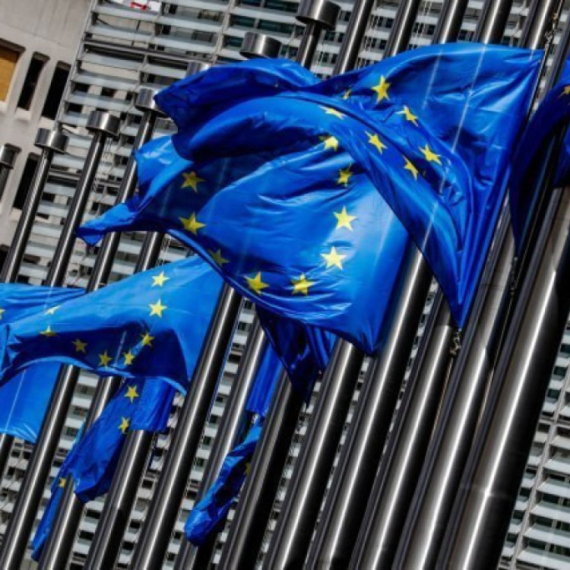
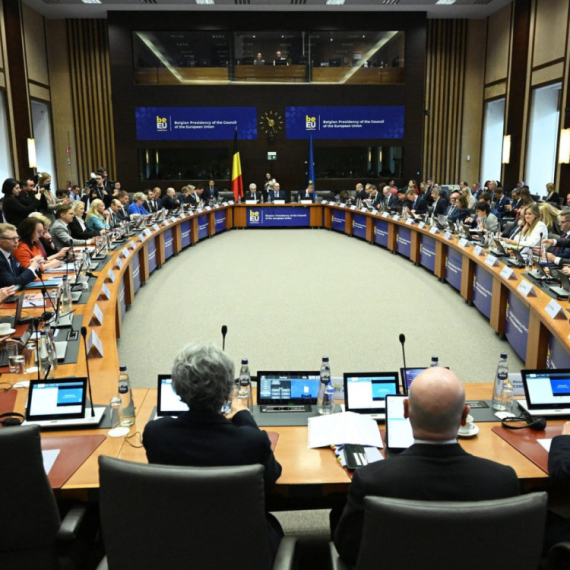
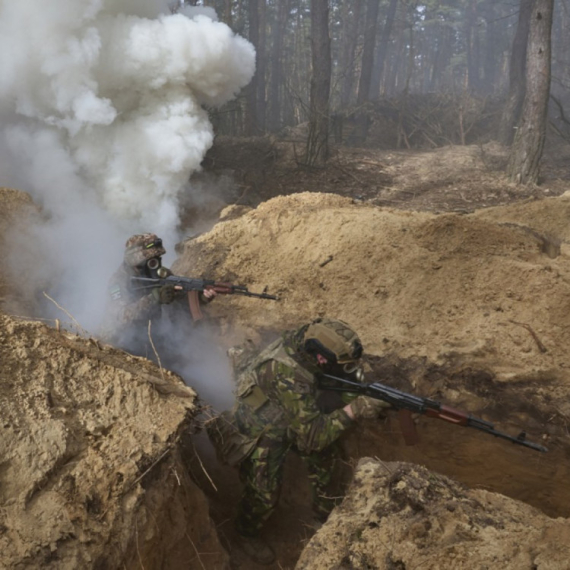
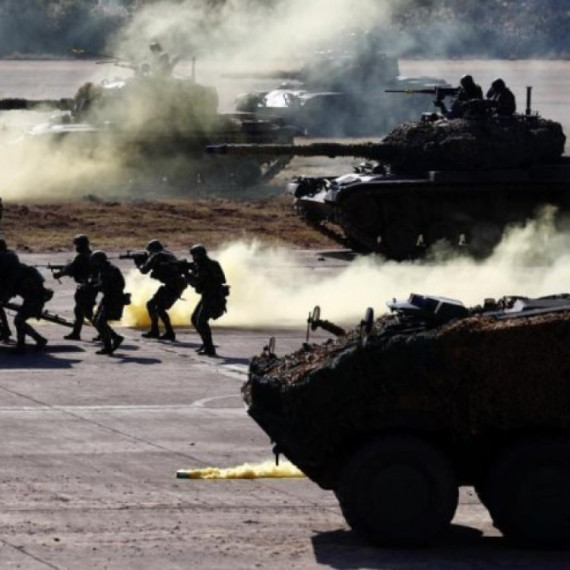
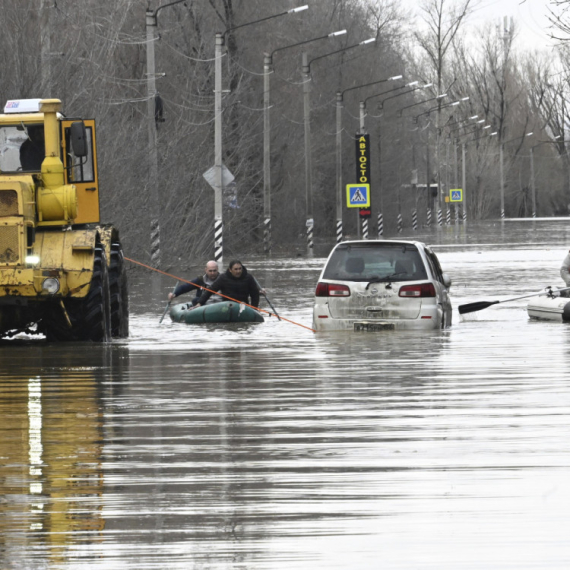

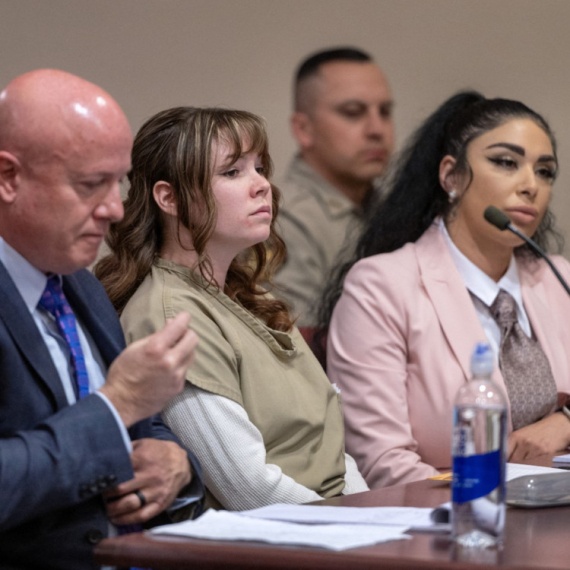
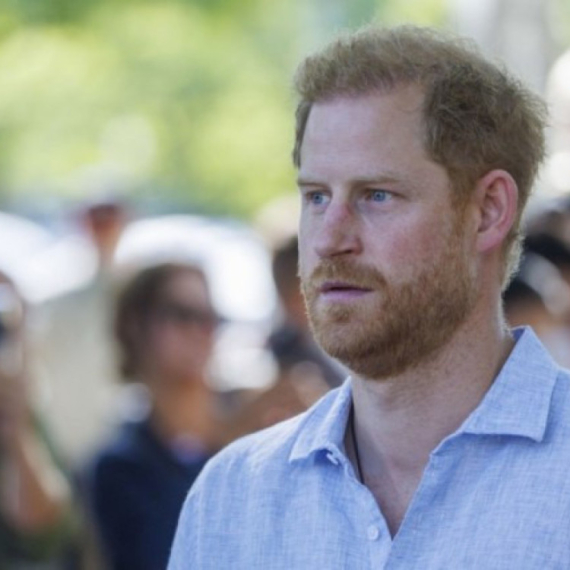








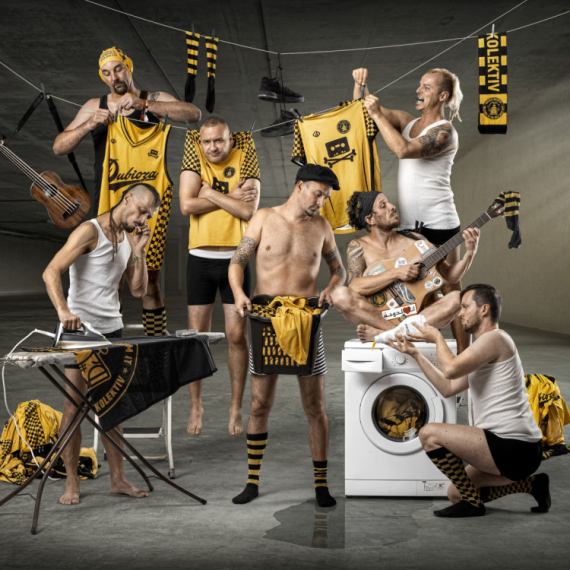
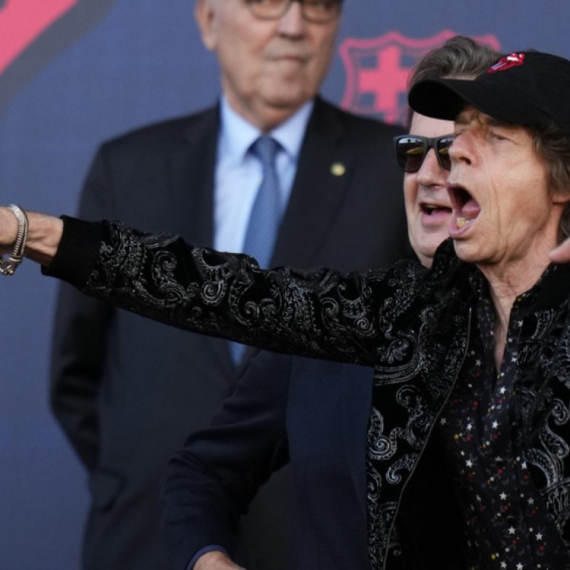
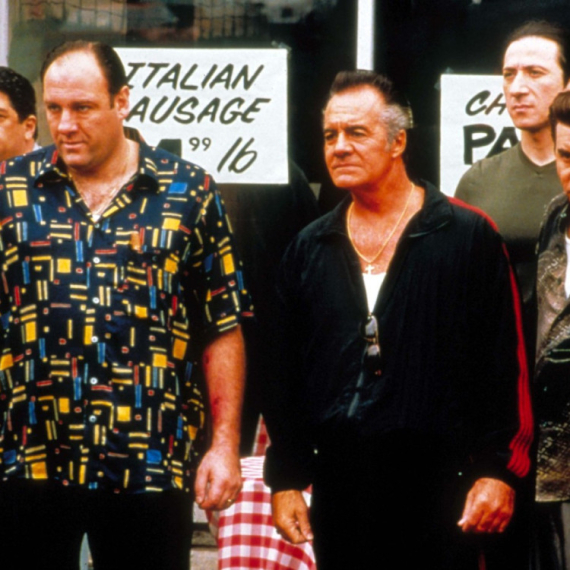
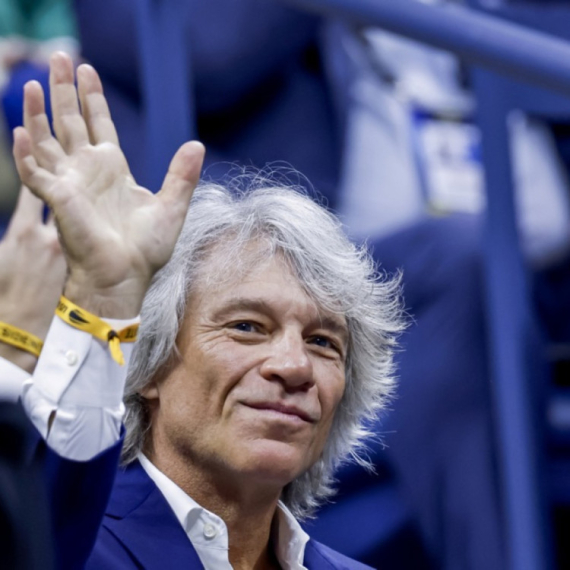





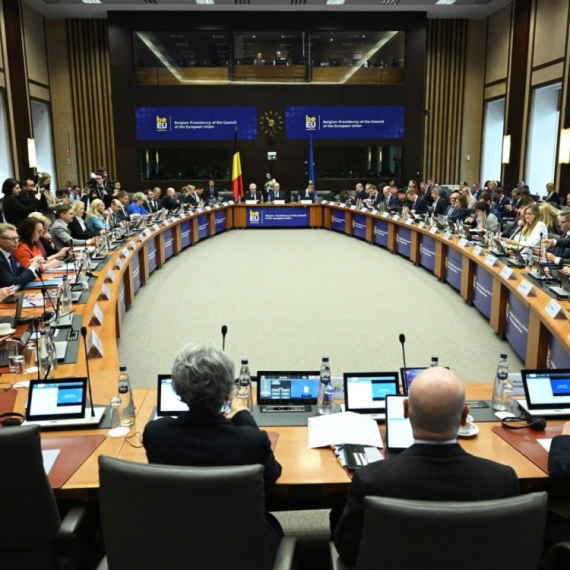
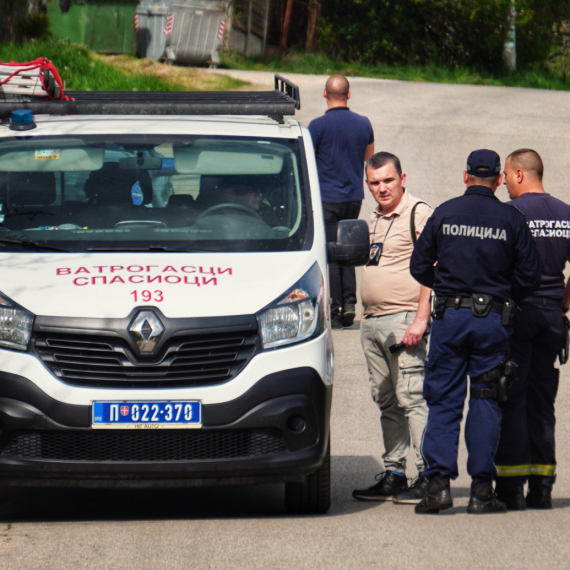
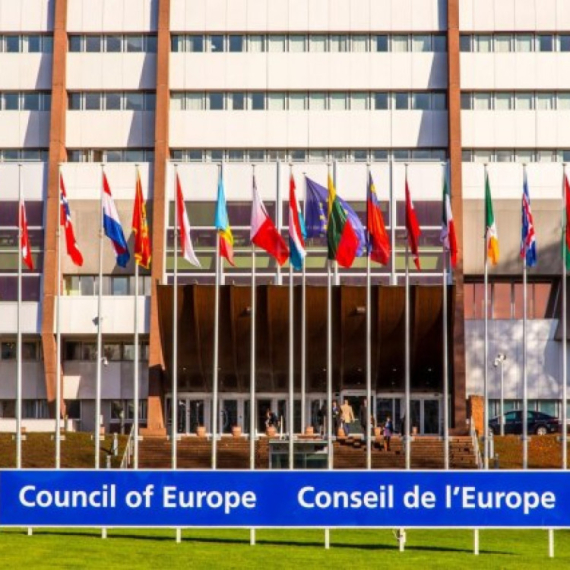
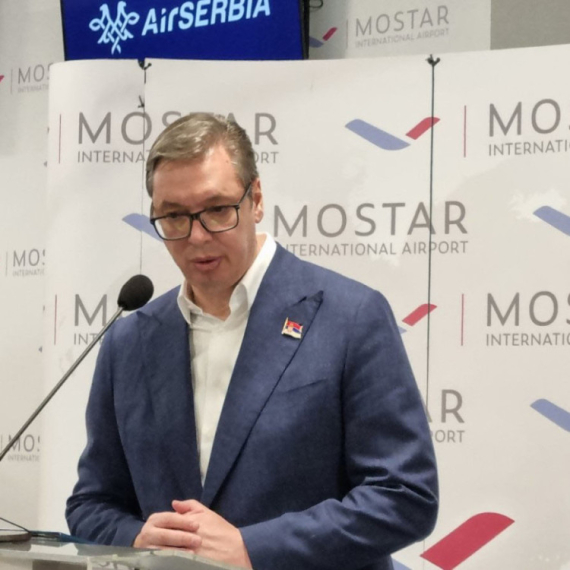






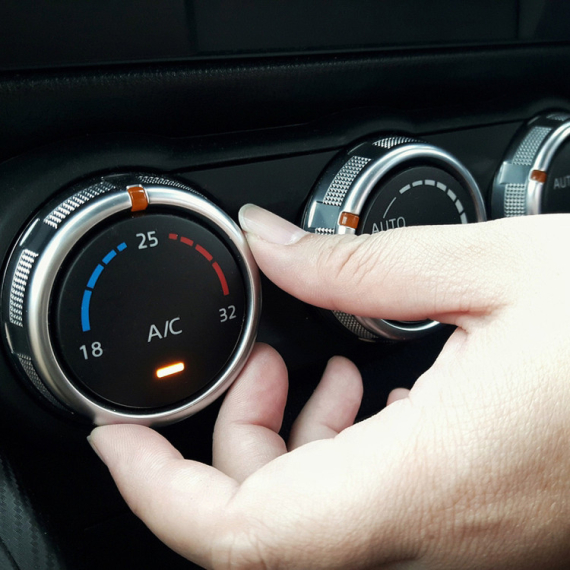


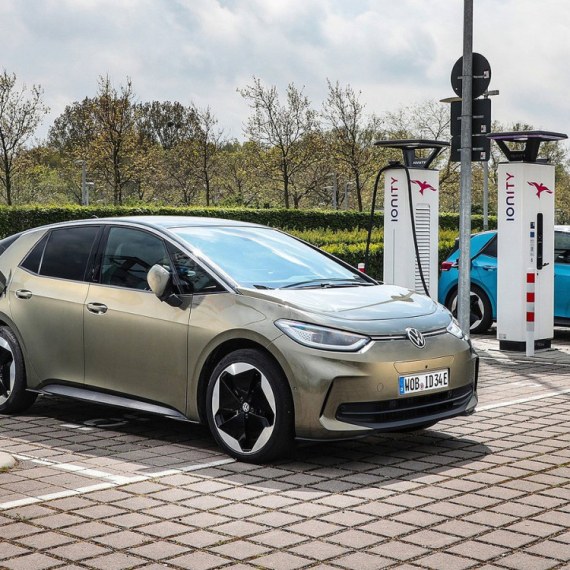

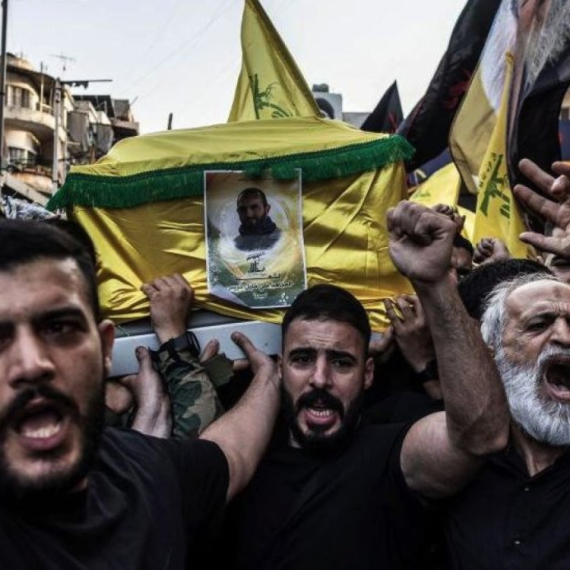
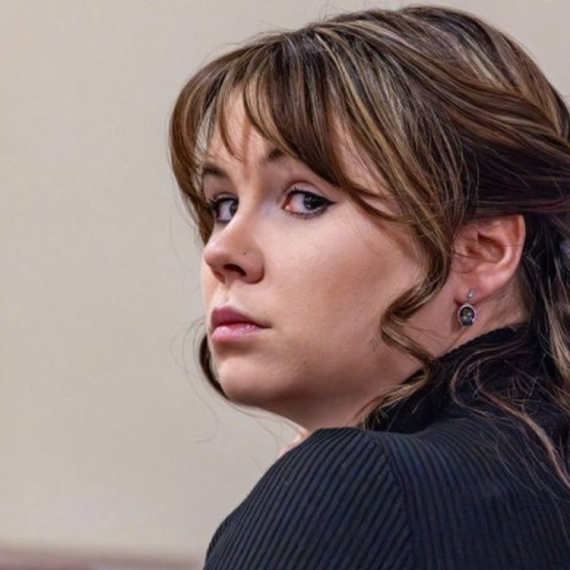
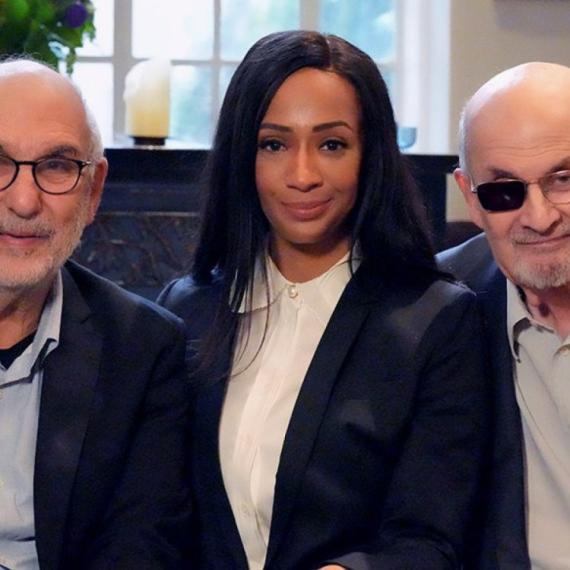
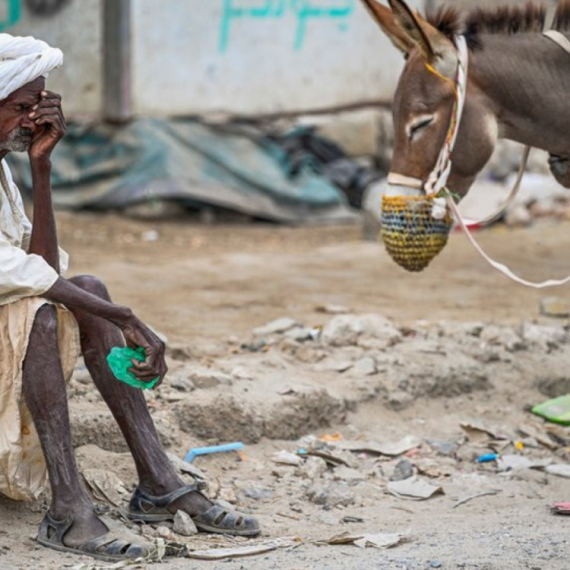
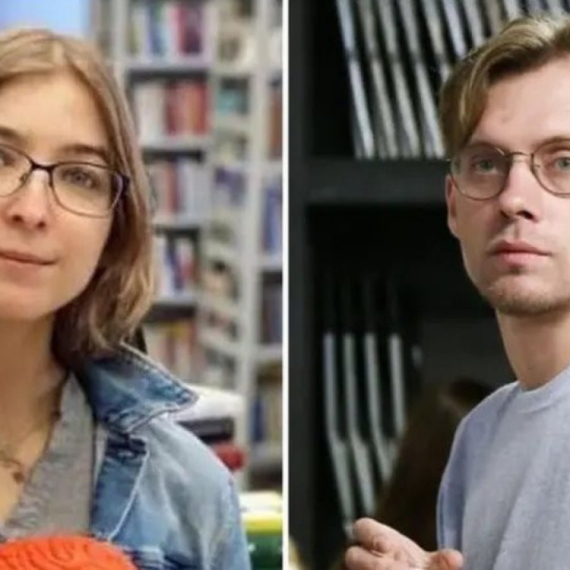

Komentari 1
Pogledaj komentare